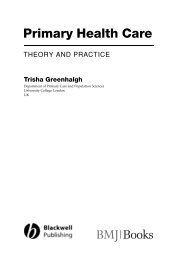DOING BUSINESS 2009 - JOHN J. HADDAD, Ph.D.
DOING BUSINESS 2009 - JOHN J. HADDAD, Ph.D.
DOING BUSINESS 2009 - JOHN J. HADDAD, Ph.D.
You also want an ePaper? Increase the reach of your titles
YUMPU automatically turns print PDFs into web optimized ePapers that Google loves.
overview 7procedures and 4 days. New businessregistrations increased by 30% in 2 years.In Portugal 86 of the 257 initiatives of theSimplex program came from discussionswith businesses.Simplifying regulation helps businessesand governments alike. In Portugalthe “on the spot” registration reformsaved entrepreneurs 230,000 days a yearin waiting time. 4 And the governmentsaves money. The United Kingdom estimatedan annual administrative burdenfor businesses of £13.7 billion in2005. Easing such burdens would allowbusinesses to expand faster and generatesavings that governments could use toenhance public services.Five years of Doing BusinessreformThe key to regulatory reform? Commitment.For many economies the reformscaptured in Doing Business reflect abroader, sustained commitment to improvingtheir competitiveness. Amongthese systematic reformers: Azerbaijan,Georgia and the former Yugoslav Republicof Macedonia in Eastern Europe andCentral Asia. France and Portugal amongthe OECD high-income economies. Egyptand Saudi Arabia in the Middle East andNorth Africa. India in South Asia. Chinaand Vietnam in East Asia. Colombia,Guatemala and Mexico in Latin America.And Burkina Faso, Ghana, Mauritius,Mozambique and Rwanda in Africa.Each of these countries has reformed inat least 5 of the areas covered by DoingBusiness, implementing up to 22 reformsin one country over the past 5 years.Several reformers were motivated bygrowing competitive pressure related tojoining common markets or trade agreements,such as the European Union (theformer Yugoslav Republic of Macedonia)or the U.S.–Central America Free TradeAgreement (Guatemala). Others saw aneed to facilitate local entrepreneurship(Azerbaijan, Colombia, Egypt) or diversifytheir economy (Mauritius, SaudiArabia). And others faced the dauntingtask of reconstructing their economyafter years of conflict (Rwanda).Many of the reformers started bylearning from others. Egypt looked toIndia for information technology solutions.Colombia took Ireland as an example.As the country’s trade minister,Luis Guillermo Plata, put it, “It’s not likebaking a cake where you follow the recipe.No. We are all different. But we cantake certain things, certain key lessons,and apply those lessons and see how theywork in our environment.”Several now serve as examples toothers. The Azerbaijan reformers visitedGeorgia and Latvia. Angola has requestedlegal and technical assistancebased on the Portuguese model of businessstart-up.The most active reformers did notshy away from broad reform programs.Since 2005 Georgia has introduced a newcompany law and customs code, a newproperty registry that replaced a confusingsystem requiring duplicate approvalsby multiple agencies, the country’s firstcredit information bureau and large-scalejudicial reforms. Egypt has implementedone-stop shops for import and export andbusiness start-up, undertaken sweepingtax reforms, continually improved itscredit information systems and modifiedthe listing rules of the Cairo StockExchange. Colombia has strengthenedinvestor protections through stricter disclosurerules, amended insolvency lawsand reformed customs. And its one-stopshop for business start-up has served asan inspiration to others in the region.Among emerging market reformers,India has focused on technology,implementing electronic registration ofnew businesses, an electronic collateralregistry and online submission of customsforms and payments. China hasfocused on easing access to credit. In2006 a new credit registry allowed morethan 340 million citizens to have credithistories for the first time. A new companylaw lowered the minimum capitalrequirement and strengthened investorprotections. And in 2007 a new propertylaw expanded the range of assetsthat can be used as collateral. Mexicohas focused on strengthening investorprotections through a new securities lawwhile continually reducing bureaucracyat the state level.Regulatory reform—what are the benefits?Of Egypt’s estimated 25 million urbanproperties, only 7% were formally registeredin 2005. Six months after reformsof its property registry, title registrationincreased and revenue rose by 39%. 5After reforms of the property registryin Tegucigalpa, Honduras, the registryreceived 65% more registration applicationsbetween July and December of2007 than in the same period of 2006.Similarly, a reduction in the minimumcapital requirement was followedby an increase in new company registrationsof 55% in Georgia and 81% in SaudiArabia. Georgia now has 15 registeredbusinesses per 100 people—comparableto numbers in such economies as Malaysiaand Singapore.Initial results like these show thatreforms are leading to change on theground. Confirming this are the findingsof an increasing number of studiesusing the Doing Business data to analyzethe effect of regulatory burdens on suchoutcomes as informality, job creation,productivity, economic growth and povertyreduction. 6Research generally finds that countrieswith burdensome regulation havelarger informal sectors, higher unemploymentrates and slower economicgrowth. More recent research gives firstinsights into the impact of reforms. Onestudy reports some of the payoffs ofreforms in Mexico: the number of registeredbusinesses rose by nearly 6%, employmentincreased by 2.6%, and pricesfell by 1% thanks to competition fromnew entrants. 7 Another study finds thatincreasing the flexibility of labor regulationsin India would reduce job informalityin the retail sector by a third. 8But nothing says more than theexperience of the people affected. Janet,who runs a business producing baskets(c) The International Bank for Reconstruction and Development / The World Bank
















